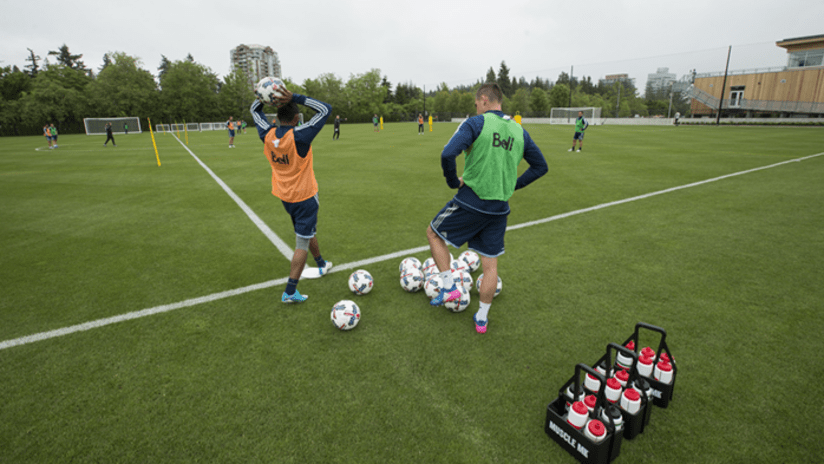A lot of unseen work goes into being an elite athlete. It’s not just the countless hours they put into training, but athletes also need to pay close attention to what food they put into their bodies.
That’s why the ‘Caps work with Sport Dietitian Emma McCrudden, who has over a decade of experience with Olympic and professional athletes. McCrudden’s role with the club is to work with the players on meeting their nutritional needs and putting together meal plans for players based on their expected workload.
“Training, talent and a winning mindset are very important attributes in high performance athletes, but good nutrition will also make a huge difference,” McCrudden said. “When athletes train, their muscles undergo significant strain, creating inflammation and muscle damage.”
“With proper nutrition, their muscles recover quickly from this, or super compensate, leaving them stronger and fitter after each training session,” she added. “Without good nutrition, the body doesn’t have the right materials to repair itself, meaning athletes may struggle to recover or improve.”
In a regular week, players will train on the pitch three to four times, work out in the gym and play one match. With such a physically demanding schedule, it’s crucial for players to ensure they’re fueling their bodies with nutrient dense food throughout the day.
Soccer athletes mainly use stored carbohydrate or glycogen as fuel for training. Players consume foods like rice, pasta, beans and other whole grains to meet their needs.
“Players are advised to eat a larger meal containing wholegrains, protein and vegetables two to three hours before training. Alternatively, if they don’t have much time, they can eat a smaller carbohydrate snack,” McCrudden said. “Not eating is like expecting a car to run without gas; athletes will eventually run out of energy to keep up with the intensity expected at training.”
McCrudden is a big advocate for eating real, minimally processed food, such as fish, vegetables, and wholegrain carbohydrates. At the same time, she said there are times when supplements are needed to support the players’ needs.
“Part of my job is to advise on those supplements that have good scientific evidence behind them,” she said. “It’s important that players eat 25-30g protein within 30 minutes following a workout so the recovery process can begin. When the players come off the field, they will grab a protein drink from the Muscle MLK fridge outside the changing room and then go upstairs to have a larger meal prepared by our in-house chef, Jen.”
“Some players prefer the Muscle MLK protein bars, which contain both protein and carbohydrates. The Muscle MLK products we use are part of the NSF Certified for Sport testing program, meaning that those products are free from banned substances.”
Soccer players need the endurance to run for 90 minutes while also being quick, agile and strong. It’s important that players eat enough to meet their energy demands, but also maintain a relatively low body fat.
“Having low body fat and high muscle mass is important in soccer. If a player is carrying an extra few kilos of fat, it will slow them down,” McCrudden said. “The players have their weight and body fat monitored regularly to make sure they are not consuming too few or too many calories. Their calorie needs change from day to day based on the volume of training or rest in their schedule.”

